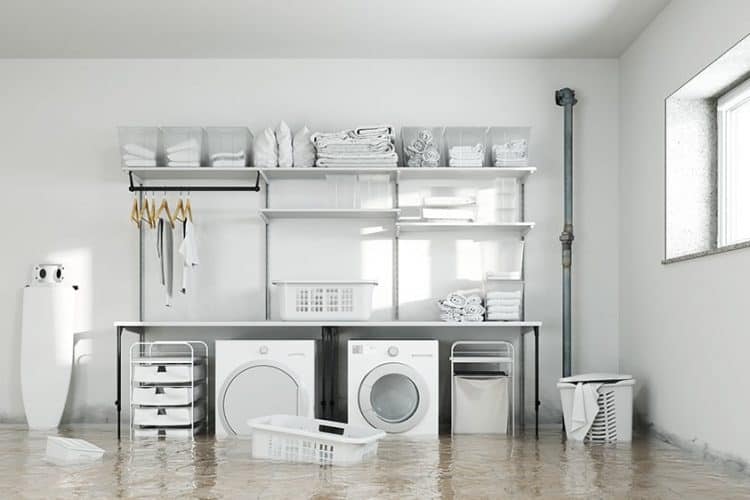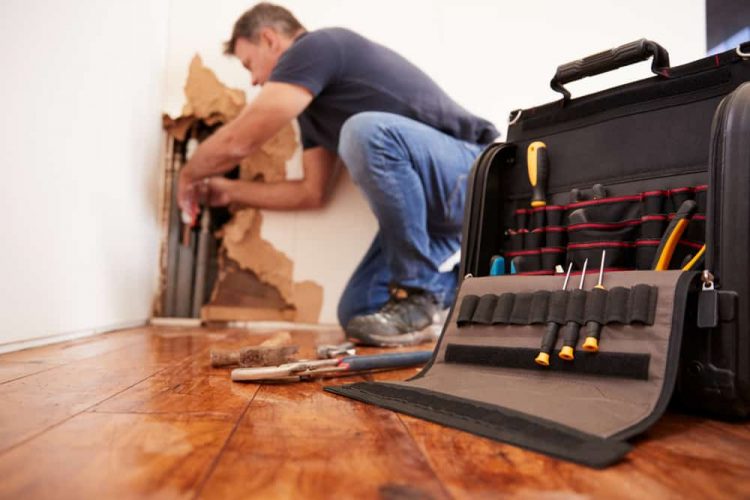
If you come across a musty smell in the house, you may or may not have a mold problem. Musty smells are linked to moisture issues in your home. If moisture issues persist over time, they can lead to mold which can cause stronger musty smells in the home. Locating the source of the smell is your first step to solving your musty smell problem.
Finding the source of the smell
Every home, no matter its age, has common places to look for the source of a musty smell. If water leaks have been happening over time, mold may have developed which could be causing the smell.
Bathrooms. Look in the tub or shower for any mold or mildew and remember to check the shower curtains. Look around your toilet to see if the seal has been broken and if water is leaking into the floor. Check around sinks as well for any broken seals at the taps which may be causing water leaks.
Kitchen. A sink is a logical place where water can leak or pipes can have condensation. Do a thorough check around the sink and garbage disposal underneath your countertop. Look for any wet areas or damp towels. Check the refrigerator and dishwasher for leaky areas, as well as any small appliances that use water (ie: coffee makers, teapots, etc.)
Basement. The basement is often a source of musty smells and water issues as it is the location of many of your home’s pipes and the water heater. Take a good look in a well-lit area to see if there is condensation on the pipes or residue near the water heater. If your laundry hamper is downstairs, check to see if you have any wet clothing or towels inside that might be causing the smell. The musty smell can also be found in old books that have absorbed moisture over time and other fibrous materials that you store in the basement.
Other areas. House plants that get too much water can develop root rot which can produce a musty smell. Overwatered plants may also leak water onto the floor, and beneath the floorboards which can lead to a mold-developing issue. Another floor-related concern can be floor mats located near your doors. If mats are often damp due to wet carpets or rugs that can persist in the flooring.
Locating the smell and handling a moisture problem
If you find the source of your musty smell, and determine the fix is something you can take care of yourself, your next step is to prevent the smell from coming back. Good moisture control can prevent mold growth.
Increase the air circulation where you can. This can be as easy as opening windows, running fans and using your HVAC system (with clean filters). For some extra moisture removal, consider using a dehumidifier to help draw moisture out of the air. In your bathroom, have the ventilation checked to make sure hot air has a method to leave the room. Also, be sure to run your exhaust fan while cooking and while the dishwasher is running. This can help remove hot air from the home as well.
The musty smell is persisting
If you have not located the source of the musty smell, call the professionals. The problem may be more serious than what you can determine on your own.
Some cleaning tips
The Environmental Protection Agency (EPA) has a guide you can reference when it comes to preventing moisture build-up and dealing with mold in your home. In addition, here are some cleaning tips we recommend:
- Deep clean carpets and upholstered furniture. You can spot-clean carpets using baking soda.
- Declutter spaces to improve airflow and isolate any moisture-sensitive areas.
- Add odor absorbers, especially to spaces that lack good circulation like closets.
- Clean your washing machine. Wipe the washer drum with a household cleaner, add two tablespoons of baking soda and run an empty hot wash cycle.
- Be diligent with a regular cleaning schedule.
Is the smell still there? You need 1-800 WATER DAMAGE
If you have followed all the steps above and still have a musty smell in the house, you could have a mold issue and you should contact 1-800 WATER DAMAGE. Our certified technicians undergo extensive training to provide safe and reliable mold removal services. No matter how big or small your mold problem is, we’ll work quickly and effectively to get the issue under control and address any of your concerns along the way.
Proper mold remediation requires skilled professionals with extensive knowledge of things like humidity levels, airflow patterns, how moisture impacts different building materials, and more. Contact us for the service provider nearest you to return your home to a musty-free environment.



